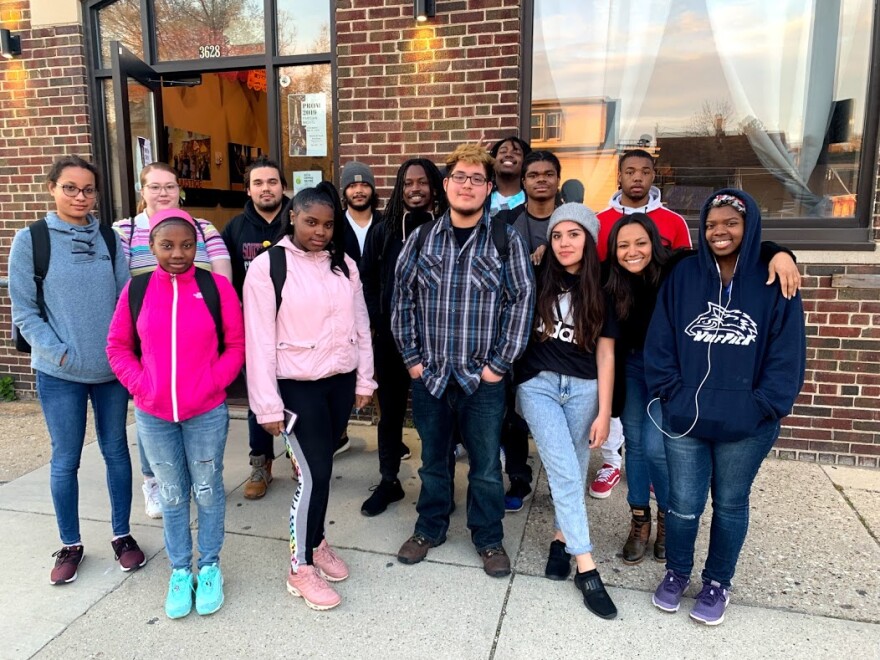In discussions about the health and safety of water, it’s typical to hear from experts, public health officials and government leaders. But you don't often get the opinions of younger people who are just beginning to learn and care about natural resources.
Young people working with Cream City Conservation Corps are having some real conversations about the environment. August Ball leads the discussion at the group’s regular Tuesday night meeting in the Silver City neighborhood on Milwaukee's south side.
» See More Project Milwaukee: Great Lakes, Troubled Waters Reports

After noticing a disconnect between young people of color and the environment, Ball founded Cream City Conservation Corps.
Much, she says, has to do with environmental racism: the disproportionate impact of environmental hazards on people of color. For example, pollutants from power plant smokestacks that can contribute to asthma and other respiratory diseases.
The Conservation Corps members range in age. Some are in high school, others in college, and some are working adults. Through the Corps, they go into communities to work on projects, such as installing green-infrastructure and revitalizing green spaces.
They also learn about environmental concerns. Some members are worried about being exposed to lead in drinking water. Lead can flake off aging pipes, and flow into faucets, including in older homes.
READ: What Milwaukee's Lead Problem Means For Children
"A lot of rumors go around saying there’s lead in the water and all different kinds of stuff. So, for us to figure out how to get it more clean for us to drink it I feel like we should do that more, and more people should get involved with it," says Mariah Merriweather.
Noelia Lope'z thinks lead should be talked about more often and more in-depth, as should other threats to water.
“With school and everything, there’s only one secure water fountain on each floor that no lead. We have a teacher that has a water jug and he offers it to almost everybody," she says. "Other than that, I feel like it should be a bigger thing talked about. I feel like it isn’t. Like, 'Oh yeah, lead,' but I feel like that’s as much as it’s talked about. It should be an actual serious thing. People can get sick off of that."
"I feel like they don't care about us. You gotta think about what's actually going on — you can't drink water," says Naeem Hunter.
Naeem Hunter points out the importance of water.
"I don’t want to sound like a conspiracy theorist, but I really understand, I feel like they don’t care about us. You gotta think about what’s actually going on — you can’t drink water … that’s the first step of survival. Not from a mental perspective, but physical existence. You need to drink water to be able to do anything after that," Hunter says.
While they have concerns about being exposed to lead in drinking water, they say they have hope going forward. They plan to help educate younger people about the potential risk, and teach them what to do to make sure what they drink is safe.
Support for Race & Ethnicity reporting is provided by the Dohmen Company.

Do you have a question about race in Milwaukee that you'd like WUWM's Teran Powell to explore? Submit it below.
_







